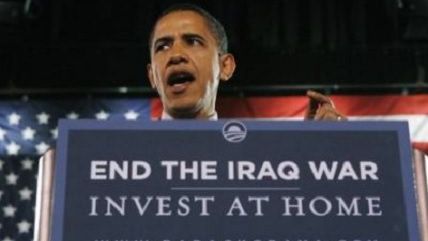ISIL Poses 'No Credible' Threat, But Obama Plots 3-Year War Campaign

President Barack Obama is planning a war against the Islamic State (a.k.a. ISIL or ISIS) that will likely outlast his own presidency.
There's been a great deal of chatter about the potential threat the terrorist group poses to the United States, especially as the anniversary of the September 11 attack approaches. Last week House Homeland Security Committee Chairman Michael McCaul (R-Texas) warned during a CNN interview that the U.S. ought to be on "high state of alert" because "they take anniversaries very seriously in terms of choosing when to attack in the United States."
This is hogwash, says House Foreign Affairs Committee Chairman Ed Royce (R-Calif.). Today he told CNN, "No, we don't have any information about credible planning for an attack" particularly around 9/11.
He isn't the only cutting through the hype on how dangerous ISIL is to America. "The FBI and Homeland Security Department say there are no specific or credible terror threats to the U.S. homeland from the Islamic State militant group," the Associated Press recently reported. Though, "as a result of recent American airstrikes in Iraq, officials remain concerned that Islamic State supporters could attack overseas targets with little warning."
Disconcertingly, even Royce, who understands that the Islamic State isn't a threat to American soil and is wary of putting troops on the ground, still supports expanding more confrontation through airstrikes. But that might be just the first phase of Obama's plans for fighting ISIL.
Despite the fact that prodding the terrorist group is a great way to turn the Islamic State's regional conflict in Iraq and Syria into an international one, the Obama Administration today suggested that the U.S. may begin "a sustained effort that could last until after President Obama has left office." From The New York Times:
The first phase, an air campaign with nearly 145 airstrikes in the past month, is already underway to protect ethnic and religious minorities and American diplomatic, intelligence and military personnel, and their facilities, as well as to begin rolling back ISIS gains in northern and western Iraq.
The next phase, which would begin sometime after Iraq forms a more inclusive government, scheduled this week, is expected to involve an intensified effort to train, advise or equip the Iraqi military, Kurdish fighters and possibly members of Sunni tribes.
The final, toughest and most politically controversial phase of the operation — destroying the terrorist army in its sanctuary inside Syria — might not be completed until the next administration. Indeed, some Pentagon planners envision a military campaign lasting at least 36 months.
This Wednesday, on the eve of the 9/11 anniversary, the president will give a national speech about his military plans.
The U.S.'s mission in Iraq has been rapidly creeping into a bigger, vaguer war, and although Obama insists "this is not the equivalent of the Iraq war," he gives little reassurance by also saying that America will "hunt down" terrorists "wherever they are," and apparently, regardless of how little of menace they are to the country.


Show Comments (160)